Day 45: Russia raids Ukraine air base; Zelensky calls for harsher sanctions
Russia says its forces have destroyed an ammunition depot at an air base in central-eastern Ukraine as President Volodymyr Zelensky calls for harsher sanctions against Moscow.
Interfax news agency quoted Russia's Defense Ministry as saying that a Ukrainian air force MiG-29 fighter and a Mi-8 helicopter were also destroyed in the attack on the base in the Poltava region.
Ministry spokesman Igor Konashenkov said a large ammunition depot was destroyed near the city of Novomoskovsk in the central-eastern Dnipro region.
Russia sent tens of thousands of soldiers into Ukraine on Feb. 24 for what it calls a "special military operation" to demilitarize and "denazify" Ukraine.
Ukraine on Saturday called on civilians in the eastern Luhansk region to flee after officials said at least 52 civilians trying to evacuate by rail from a
neighboring region were killed in a missile attack.
Russia has repeatedly denied allegations of war crimes and denies targeting civilians in Ukraine.
Governor of the Poltava region, Dmytro Lunin, said on social media that two people had been wounded and "significant damage" caused due to the Russian strike at Myrhorod.
Konashenkov said Russia has hit 85 military targets in Ukraine, including two command posts, three rocket launchers, four self-propelled artillery guns, an ammunition depot and two logistics depots, among others.
Since Feb. 24, Russian forces have destroyed 650 aircraft, including jets and helicopters, and more than 2,000 tanks and armored vehicles in Ukraine, Konashenkov was quoting as saying by Interfax.
According to estimates by Ukraine's Defense Ministry, 19,100 Russian personnel have been killed since the start of the war. It says Russia has lost 705 tanks, 1,895 armored personnel carriers, 151 aircrafts and 136 helicopters.
Kremlin spokesman Dmitry Peskov said on Thursday that Russia had sustained "significant losses" in Ukraine.
In its most recent update, on March 25, Russia's defense ministry said 1,351 Russian soldiers had been killed since the start of the campaign, and 3,825 had been wounded.
The European Union has blacklisted Russian President Vladimir Putin's two adult daughters and more than 200 other people as part of the bloc’s latest sanctions against Moscow over its military operation in neighboring Ukraine.
The European Union's Official Journal said on Friday that the bloc had blacklisted the Russian leader’s two daughters, Maria Vorontsova and Katerina Tikhonova, as well as a total of 217 individuals, who will face asset seizures and travel bans in the 27-nation European Union.
Among the notable entries on the official list were Igor Konashenkov, Russia’s Defense Ministry spokesman, Herman Gref, the head of Russia's Sberbank, oligarch Oleg Deripaska who owns arms factories, several members of the ultra-wealthy Rotenberg family close to Putin and the members of the political administrations running separatists-held areas in eastern Ukraine.
"We are again reinforcing our sanctions lists and adding more people from politics, the business sector and those engaged in propaganda activities, together with more entities from the financial, military-industrial and transport sectors," EU foreign policy chief Josep Borrell said in a statement.
"We are targeting the Kremlin, the political and economic elites supporting Putin's war in Ukraine. The aim of our sanctions is to stop the reckless, inhuman and aggressive behavior of the Russian troops and make clear to the decision makers in the Kremlin that their illegal aggression comes at a heavy cost,” Borrell added.
The EU sanctioned Putin’s offspring over claims that they benefit from the Russian government, saying the Russian leader’s eldest daughter, Vorontsova, was on the list because she was co-owner of Nomenko, a company "involved in Russia's largest private investment project in healthcare.”
The EU list had her sister Tikhonova included because "she currently heads the Innopraktika development initiative, funded by key Russian companies whose directors are members of the inner circle of oligarchs close to President Putin.”
Vorontsova and Tikhonova were born in 1985 and 1986 respectively. Their mother is the Russian leader's ex-wife Lyudmila, whose divorce from Putin was announced in 2013.
Since the start of war in Ukraine, the European Union has blacklisted around 700 people linked to the Kremlin or accused of supporting the military operation in the former Soviet republic.
Putin had already been sanctioned in an early round of restrictive measures, although it is unclear how many assets, if any, he and his family hold in the bloc.
The Russian president announced what he called a “special military operation” on February 24 to demilitarize the Donbas region in eastern Ukraine, predominantly populated by ethnic Russians.
The US and its European allies have dubbed the military operation as “Putin’s land grab,” imposing unprecedented sanctions on Moscow.
Russia, however, has stressed that it will halt the operation if Kiev meets Russia’s demands, including abandoning the ambitious bid for membership in the NATO military alliance.
Video: Ukrainian soldiers shooting Russian prisoner of war
A video circulating on social media networks on Friday showed soldiers fighting for Ukraine appear to shoot a Russian prisoner of war outside a village west of the capital, Kiev.
In the footage, at least three men in camouflage, including one with a head wound and his hands tied behind his back, can be seen lying dead next to a fourth man, who is breathing heavily with a jacket covering his head.
“He’s still alive. Film these marauders. Look, he’s still alive. He’s gasping,” a man in the video can be heard saying in Russian.
A soldier then shoots him in the head twice. He continues to move, so the soldier shoots again, and he stops. A soldier can then be heard shouting “Glory to Ukraine”. A man responds with the phrase, “Glory to heroes.”
The audio ends with a man saying, “Do not [expletive] come to our land.”
The living soldiers in the video are wearing the Ukrainian colors of blue and yellow on their arms, while the men on the floor wear white armbands, the color of Russian troops.
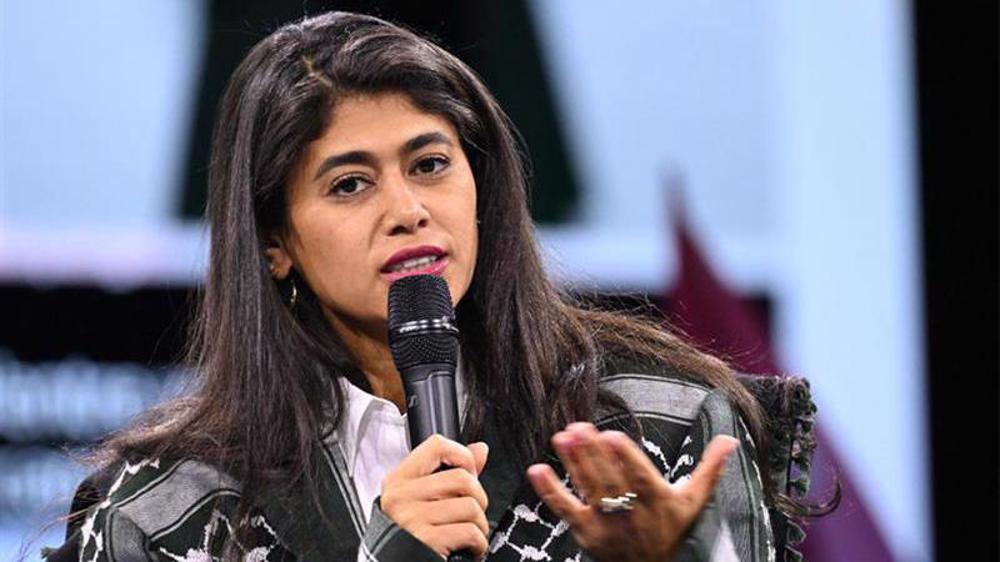
French leader decries ‘unprecedented diplomatic scandal’ after Israel bars European MPs
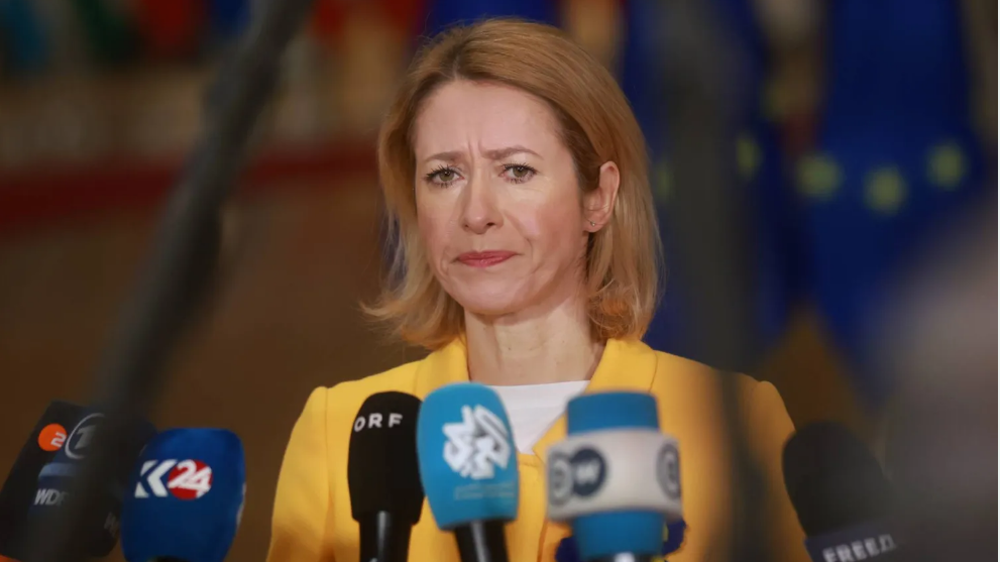
EU imposes new sanctions on Russia on third anniversary of Ukraine war
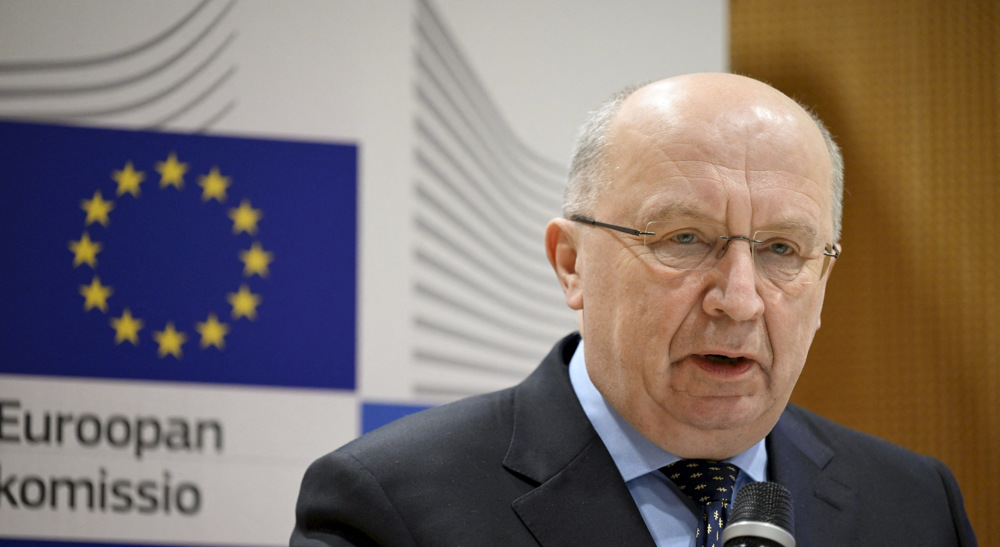
EU weighting new aid package to Ukraine ‘to show support’ amid rift with US
US official vows to imprison pro-Palestine protesters for years
Arab states condemn Israel's new aggression against Syria
IRGC adds homegrown warship, fast attack craft to naval fleet
VIDEO | Press TV's news headlines
Over 700 bodies recovered in Gaza, most remain unidentified
VIDEO | US TikTok ban
Palestinian youth succumbs to injuries sustained in West Bank strike
US Attorney General hints at Epstein files release amid skepticism


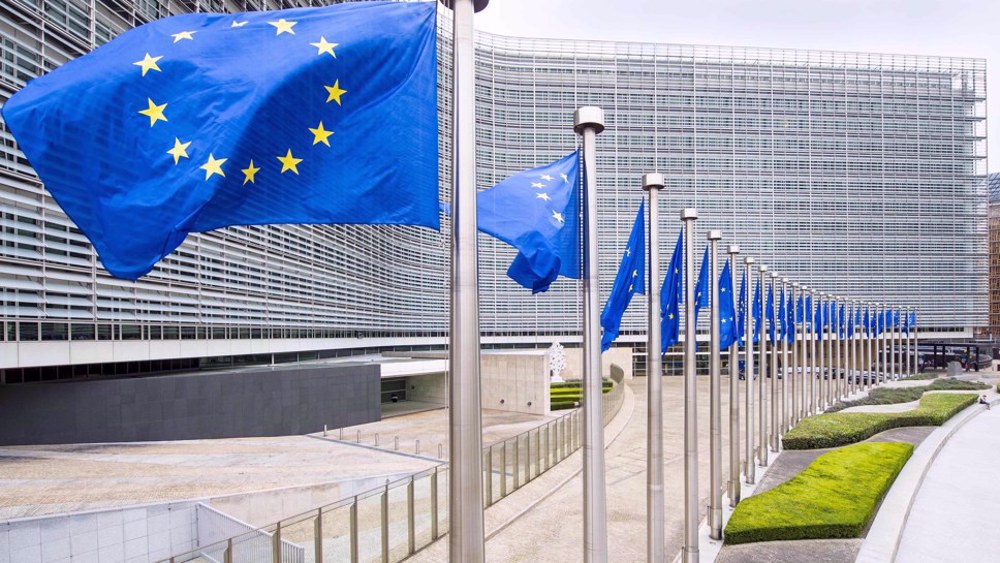
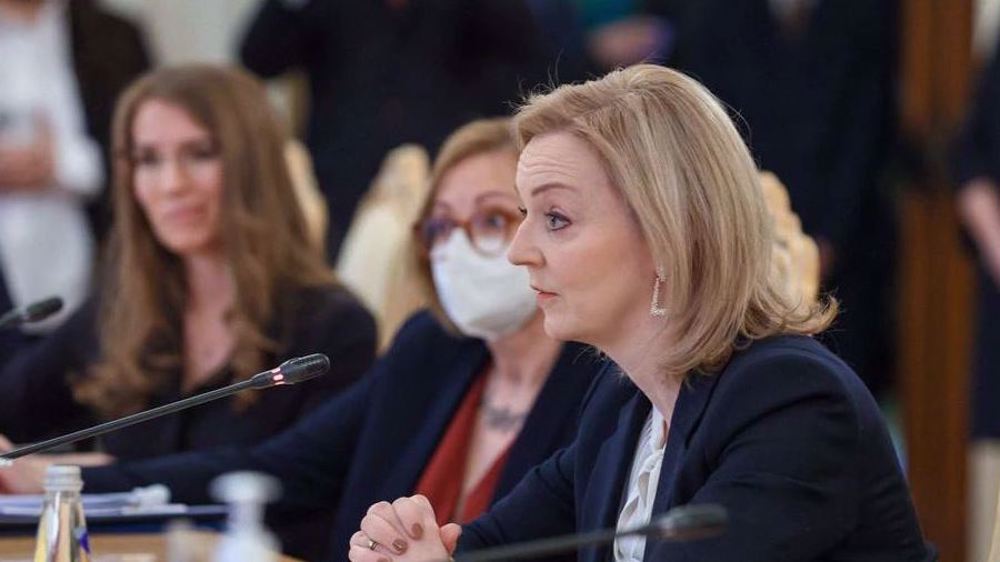




 This makes it easy to access the Press TV website
This makes it easy to access the Press TV website